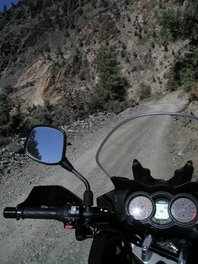Dolores Huerta: César Chávez’s family had always lived in Arizona in Mexico.
Border guard 1: [move border] Now it’s in the United States!
Grandfather Cesario: So now I’m American Right?
Border guard 2: Well, I don’t know about that.
Border guard 3: Yeah, you just look like a Mexican to me.
Father: Look papá! A baby boy! We’ll name him César after you!
Grandfather: What a lovely baby.
Little César: I love to play on my family’s farm!
Mother: Bad news. We need to leave our home because we can’t pay the government the taxes that we owe.
Little César: So we’re homeless now?
Mother: Yes, that’s the word when you don’t have a place to live.
Father: We have to travel from farm to farm looking for work.
Mom: You will have to work, too, César.
Little César: Now we drive all around California working on farms. There are new towns and new schools.
Teacher 1: Hi! I’m your new teacher.
Teacher 2: Hi! I’m your new teacher.
Teacher 3: Hi! I’m your new teacher.
Teacher 4: Hi! I’m your new teacher.
Teacher 5: Hi! I’m your new teacher.
Little César: ¡Ay! !Aún otra escuela! ¡Aún otra maestra!
Teacher 6: Stop that! It is bad to speak Spanish! Only dumb people speak Spanish!
Bigger César: Eso no es justo.
Teacher 7: Go sit in the corner. Wear this dunce hat.
Bigger César: Never mind. I need to go work to feed my family. 7th grade will have to be enough.
Recruiter: Join the Navy and defend the United States!
Big César: Aye-aye, sir! [marches around a lot] Wow. That was the worst 2 years of my life!!
Sign carrier: [silently carries sign across stage]
Big
César: So that’s what I get for helping defend the United States?
People talk about me like I’m a dog? Like I’m not even American?
Worker 1: So where is the organizer who is coming to speak with us?
Big César: Uh… It’s me!
Worker 2: Don’t make me laugh!
Worker 3: You are the leader who is going to get us fairness in our work?
Big
César: No, I’m not. You’re the ones who are going to get yourselves
fairness at work. I am here to help and lead, but you’re the ones who
have to do the job.
Union buster 1: You better quit protesting and get back to work!
Union buster 2: Yeah, you’re pretty small. I bet if I hit you with this stick you would just dry up and blow away.
Big César: That’s probably true, but there are a lot more than me here.
Crowd: ¡Si se puede! ¡Si se puede! ¡Si se puede!
Dolores
Huerta: Actually, that was MY line. Not César’s. Like he said— we’re
the ones that have to do the job. Not just him. [winks]
Worker 4: César, the stuff they are spraying on the grapes is getting on us and making us sick!
Worker 5: I wonder if it is making people sick when they eat it?
Owner
1: Of course not! It helps me make more money when I spray the grapes.
It’s perfectly safe. I would be happy to stand right there beside you in
the fields when they spray.
Older César: OK, then. How about tomorrow at 7:00 in the morning when we are working and they airplane comes to spray?
Owner 1: Um, I’d like to, but I have to get a haircut then.
UFW member 1: César, please drink some of this broth I made you! It is not good to stop eating for so many days!
Older César: I… can’t… this … is how… I show… that it is… more important to me… than life or death.
UFW
member 2: ¡Ay, César! If you go on hunger strike like this, you will
damage your health. You probably won’t even live to be 70 years old!
Dolores
Huerta: [aside] Yeah, we told him, but he wouldn’t listen. Look at me!
I’m almost 90 now, and I just go, go, go! ¡Viva la causa! In fact, César
will die at age 66. He won’t even live to see the year 2000.
All workers and UFW members: ¡No compran uvas! ¡No compran uvas!
Kid: Mommy, can we buy some grapes? They’re my favorite fruit!
Mom:
Well, you like oranges, too, don’t you? The farm workers outside
wouldn’t ask us not to buy grapes unless it was really important.
Kid: Yay! Oranges!
Owner 2: Will you look at all this fruit? It’s just rotting! This will cost hundreds of thousands of dollars!
Owner 3: Wow. Who knew we needed people so badly?
Owner 4: Yeah, it’d probably just be cheaper to pay the UFW better wages, don’t you think?
UFW member 3: My feet feel like they are on fire!
UFW member 4: How far can Sacramento be, anyway?
UFW member 5: Only about 5 hours.
All UFW members: [yelling] That’s only if you are driving in a car! We’re walking the whole way!
UFW member 6: ¡Ay! Hey, has anyone seen César?
Older César: This better be awfully important. I’m supposed to be out somewhere near Tracy walking all the way to Sacramento.
Farm owners: OK, fine Mr. Chávez. You win. Let’s negotiate a contract!
Farm owner 5: You’re a pretty tough opponent, Mr. Chávez.
Older
César: Look I told you, I told them, I told everybody. It’s not me:
it’s all of us. It’s the whole United Farm Workers. It’s all our
families. It’s all the people who do the work that you need to get done.
That’s who!
